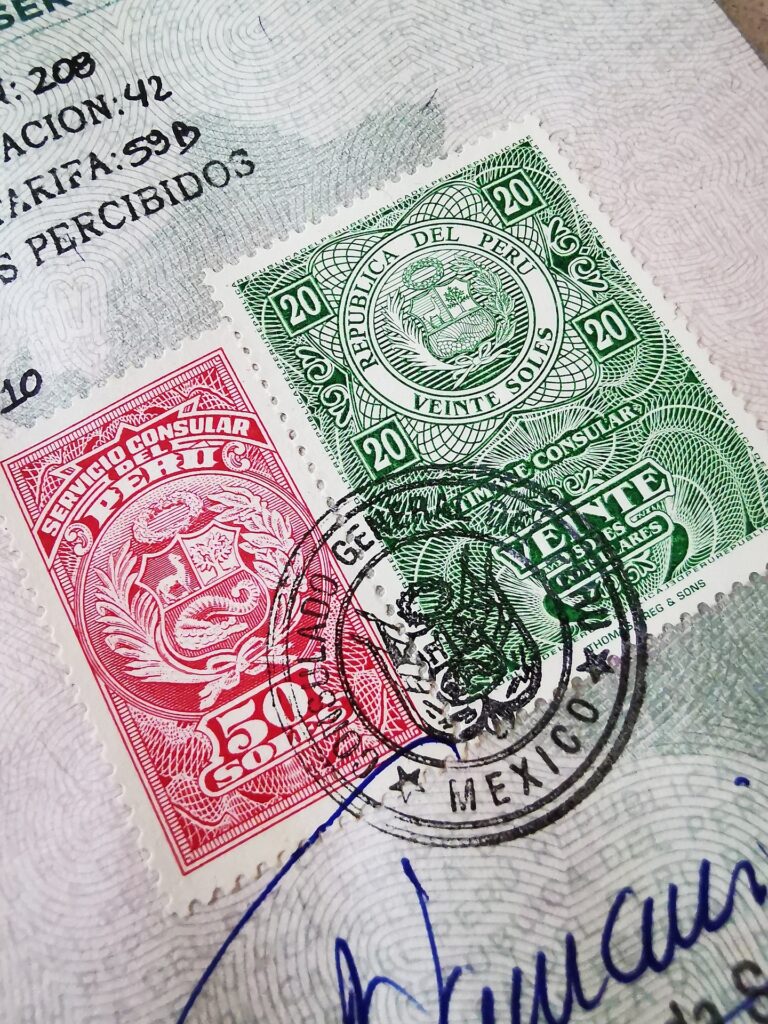Traveling can be a thrilling and enriching experience, but it can also bring up feelings of anxiety and fear. Knowing how to stop fear when it pops up will make all the difference in your travel experience. Whether you are an experienced traveler or planning your first trip, it’s common to have some worries about what you don’t know or what could go wrong. These feelings are completely normal and valid, and most people feel a little nervous or anxious before embarking on a trip. In fact, there are a number of common travel fears that many people experience before and during their travels. Let’s explore some of the most common travel fears and offer some tips on how to manage them.
 1. Fear of Flying
1. Fear of Flying
The fear of flying is one of the most common travel fears affecting up to 40% of the population. This fear can range from mild unease to a full-blown panic attack. Only 2 to 6% of those people experience aviophobia which is a clinical phobia. For most people, however, the consternation is much milder. No matter where you fall on this spectrum, the good news is that flying is one of the safest modes of transportation, and there are many ways to manage your fear.
To overcome your fear of flying, start by educating yourself about the safety of air travel. Even I get nervous on planes. I know that it is a secure way to get from point A to point B, but my heart still races a little bit when we hit a patch of turbulence. Learn what turbulence is, learn about the various safety features of airplanes, how they are maintained, and how pilots are trained. Knowing that turbulence is just a change in the air around you and rarely causes issues. Having that information will help keep you calm if your plane shifts a bit whilst in flight.
You can also try relaxation techniques like deep breathing or meditation during takeoff and landing. These are some of my go-to practices when I am traveling. I will also always have a podcast and/or music playlist downloaded as well as a book on hand. Reading a book, watching a movie, writing or listening to music are great ways to occupy your mind. There is nothing wrong with utilizing distraction techniques on yourself to keep your brain quiet. It can be a form of self-care in these situations.
What I don’t recommend is excessive alcohol consumption. Will it distract you from your current stress? Maybe, but it could also cause ones that you won’t be counting on. I have seen many travelers banned from airlines and airports from having one too many and getting rambunctious. If you like to have a glass of wine or a beer before flying, by all means, go ahead. Just keep your head about you and keep it to a minimum. Your future self will thank you.
2. Fear of Getting Lost
The concern about getting lost in a new place is another thing that causes people to hesitate. This hesitation is elevated if you are traveling to a new city or country, if you don’t speak the language or if you are not familiar with the local customs. However, with some planning and preparation, you can minimize the risk of getting lost. The key to knowing how to stop fear really comes down to being prepared.
Before you pack your bags, research the area you will be visiting and make note of any important landmarks, transportation options, police stations and local customs. Download offline maps or invest in a portable GPS device to help you navigate. As an extra precaution, make sure you have a backup plan in case your technology fails. You can also consider hiring a local guide or taking a group tour to guide you around your destination without worrying about where you are going. There are several great tour companies with excellent reputations all over the world. Not only does the risk of getting lost diminish, but you might make new friends as well! I will link some of my favorites below.
3. Fear of Getting Sick
Getting sick while traveling can cause some anxiety, especially if you are traveling to a new and unfamiliar environment. This is a valid concern. To minimize your risk of getting sick, be sure to research any health risks associated with your destination. Each country is different so make sure to take appropriate precautions, such as getting necessary vaccinations, taking probiotics, or taking medication for malaria or other illnesses that might be of concern. I also highly recommend carrying extras of any prescribed medications that you are taking. It is also a good idea to know if, and where, those medications can be found if you end up needing a refill. Check out where the local medical centers are before you go and have their address available if you need it.
One of the most important, and simplest, things you can do is to practice good hygiene habits. Wash your hands frequently and avoid street food and/or tap water in areas where the water quality is questionable. Keep in mind that no matter where you go, your body might take some time to get used to the different foods and bacteria so there might be an adjustment period. If you take appropriate precautions, however, you can minimize, or even avoid, most of these symptoms. Finally, make sure you have adequate travel insurance that covers medical expenses in case you do get sick and carry a basic first aid kit with you.
4. Fear of Being Alone 
Traveling alone can be a daunting experience, especially if you are used to having company or support. In spite of that, solo travel can also be a wonderful way to explore the world and gain a sense of independence. I highly recommend it to everyone, even you introverts. You might surprise yourself! In fact, I can almost guarantee that you will.
If this is a big stressor for you, there are ways you can ease yourself into it and prepare yourself if you are wanting to know how to stop fear from creeping in. Start by practicing in small ways in familiar places. You can go to a movie by yourself or head out to eat alone at your favorite restaurant in your hometown. This will help you start to build that confidence and will get you more comfortable with your own company. When you take that next step and book a trip, stay in hostels or other social accommodations where you can meet other travelers. This is another great reason to join a group tour or activity where you can meet people with similar interests. I tend to meet more people solo-traveling than I do when I am on the road with other people. Think about it, if you have your friends, family or significant other with you, you are less likely to branch out and talk to people outside of your group. Use this solo travel experience to explore more about yourself.
(Shameless plug: keep a lookout for upcoming group adventures!)
5. Fear of theft or crime
Ok, this is a topic that we could discuss for hours because it is so common and notably valid. This is especially true for solo travelers or those visiting cities with higher crime rates. How to stop fear about this area is more about being prepared and aware than anything else. To manage this concern, it’s important to take basic safety precautions, such as keeping your valuables out of sight, avoiding walking alone at night and keeping your travel plans to yourself. While some cities are more prone to crime, it is always good practice to be aware of your surroundings at all times and keep your valuables close no matter where you are. I will talk more about actual scenarios that I have heard of from fellow traveling friends as well as ones I have witnessed myself.
Try to avoid ATMs located on busy streets where you will have your back to the crowds. If you are able to, find an ATM that is located inside of a bank or that has cameras around it. In a tourist city, criminals know where these spots are and will be watching to see who isn’t paying attention
Don’t carry all of your cash in one spot. If your wallet does get stolen, it is good to have backup money to get a cab or make a call. Keep a little bit of emergency cash in a hidden jacket pocket, in your shoe, or you could use a bra stash. It might sound silly but I promise it will be a huge sense of relief if a thief does get your wallet. I have to mention here, don’t keep your wallet in your back pocket and don’t have it out for any longer than you need it. Minimizing the opportunities for others to have access to your things is one of the most effective steps you can take to safeguard your valuables.
Consider leaving your wedding rings at home. This goes for any jewelry that you would be devastated about if you were to lose it. When I travel, I wear a silicone wedding ring and leave any flashy jewelry at home. The less attention you draw to your valuables, the better.
 Don’t leave your phone, wallet, or laptop, unattended on the side of a table. This is especially true for restaurants with outdoor seating. There are skilled thieves that watch for this. Sometimes they will just try to grab and go, and other times they will come up to you to make conversation or try to ‘sell’ you something. I have seen this happen and there isn’t much you can do once they run and lose themselves in the crowd.
Don’t leave your phone, wallet, or laptop, unattended on the side of a table. This is especially true for restaurants with outdoor seating. There are skilled thieves that watch for this. Sometimes they will just try to grab and go, and other times they will come up to you to make conversation or try to ‘sell’ you something. I have seen this happen and there isn’t much you can do once they run and lose themselves in the crowd.
Keep your travel plans to yourself. Don’t post about it on social media in real time, and don’t talk to strangers about where you are going next or about what you have planned. We have heard the stories about thieves robbing someone’s home because they knew the people were on vacation based on social media posts, but it is also a concern for your safety if you are tagging your location in posts. Think about the incident with Kim K. and the criminals that knew where she was and what valuables she had. It is always better safe than sorry. Save your posts for a day or two later. You can still show highlights of your travels, just don’t do it in real time.
I will end with this last thought, it is ok to exit a conversation or situation if you are feeling uncomfortable. I know we all want to avoid being rude, but if your alarm bells are ringing, it is best to err on the side of caution and remove yourself from the imposing environment.
6. Fear of the Unknown
The fear of the unknown is a common travel fear that can hold you back from fully embracing new experiences. For some people, staying in around what they know and are comfortable with has been reinforced over the years. Travel, however, is all about exploring that which is new to you and stepping out of your comfort zone.
Start by embracing the mindset of a traveler and approaching each new experience with an open mind and a sense of curiosity. Be willing to try new foods, engage with locals, and explore new places. Remember that the best travel experiences often come from stepping out and trying something new. If you are experiencing anxiety over this, know that it is a normal reaction, but not one that can’t be overcome. Do your research ahead of time and learn as much as you can about your destination and the local customs and etiquette there.
 As you can see, there are a number of common travel fears that many people experience before and during their travels. Knowing how to stop fear might not be able to completely eliminate it, but by preparing ahead of time, having a plan, practicing self-care, and taking basic safety precautions, you can manage them and fully enjoy all that travel has to offer. You might be sensing a pattern here and you are right. Information is your best friend when it comes to tackling any fear or anxiety. Learning these skills now will not only reward you with better travel experiences, but also carry over to other areas of your life as well. Remember, the rewards of travel far outweigh the risks!
As you can see, there are a number of common travel fears that many people experience before and during their travels. Knowing how to stop fear might not be able to completely eliminate it, but by preparing ahead of time, having a plan, practicing self-care, and taking basic safety precautions, you can manage them and fully enjoy all that travel has to offer. You might be sensing a pattern here and you are right. Information is your best friend when it comes to tackling any fear or anxiety. Learning these skills now will not only reward you with better travel experiences, but also carry over to other areas of your life as well. Remember, the rewards of travel far outweigh the risks!
Let me know in the comments if you have any great tips that helped you overcome any travel anxieties. #getstamped


